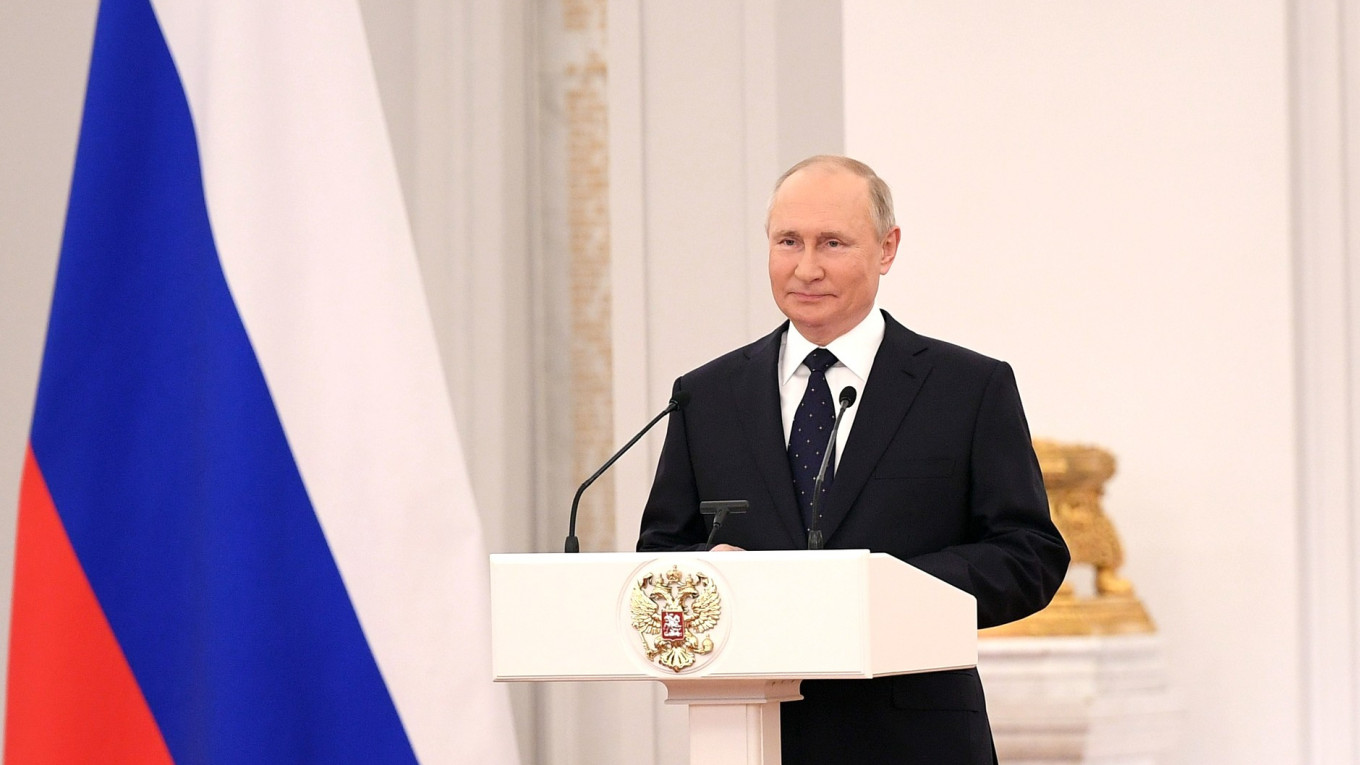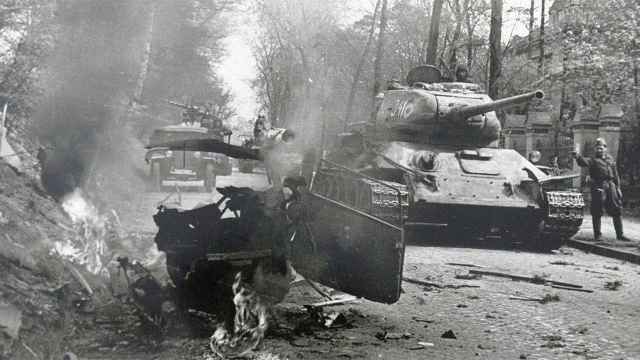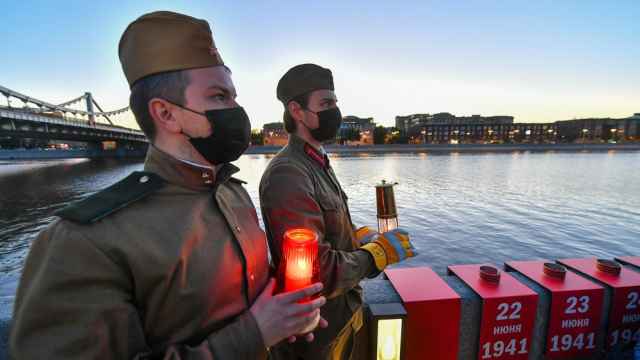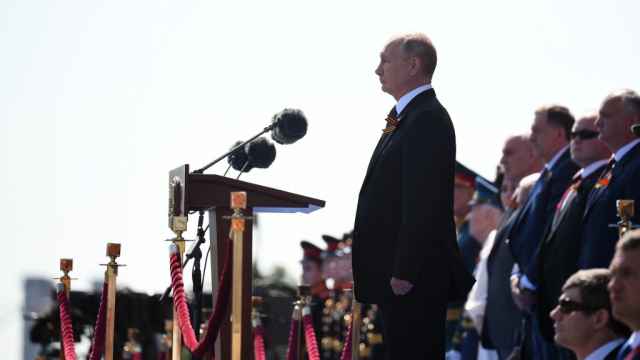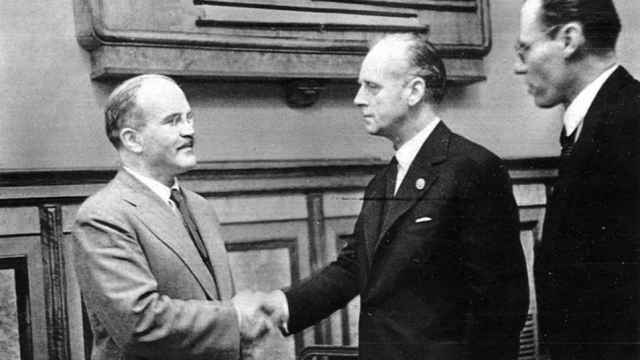President Vladimir Putin published an essay revisiting the “collective” lessons for Europe following World War II to urge cooperation between Russia and the West in the German newspaper Die Zeit on Tuesday.
Titled “Being Open, Despite the Past,” the essay marks the 80th anniversary of the Nazi invasion of the Soviet Union and is the latest example of Putin seeking to push Russia’s narrative of the war and its memory. It reflects a departure in tone from his essay last year for a U.S. conservative magazine in which he attacked European leaders for failing to understand the “real lessons” for the war.
In his latest work, Putin discusses Europe’s collective trauma from World War II, the key role that the Red Army played in liberating the continent from Nazi occupation and the divisions of the Cold War that immediately followed.
“Having lived through the horrors of the world war, the peoples of Europe were nevertheless able to overcome alienation and restore mutual trust and respect,” Putin wrote.
Putin, who himself lived in communist East Germany as a young KGB agent, emphasized the “historical reconciliation” of Russians and Germans “in the east and in the west of today's united Germany.”
“We hoped that the end of the Cold War would be a common victory for Europe. It seemed that just a little more effort was needed to make Charles de Gaulle's dream of a single continent — not even geographically ‘from the Atlantic to the Urals,’ but culturally and civilizationally ‘from Lisbon to Vladivostok’ — become a reality.
“But a different approach has prevailed,” he wrote, pointing to NATO’s eastward expansion to ex-Soviet countries.
“Tensions are rising and the risks of a new arms race are becoming real. We are missing out on the tremendous opportunities that cooperation offers — all the more important now that we are all facing common challenges, such as the pandemic and its dire social and economic consequences,” Putin said.
He then emphasized Russia’s willingness to create a common space for cooperation and security from the Atlantic to the Pacific Ocean.
“Our common and indisputable goal is to ensure continental security without dividing lines, a common space of equal cooperation and universal development in the name of the prosperity of Europe and the world as a whole,” Putin said.
Observers took issue with Putin’s description of the Euromaidan protests as a “coup” orchestrated by the United States and backed by the European Union that he said provoked the “withdrawal” of Crimea and eastern Ukraine, however.
“The interpretation of the Ukrainian crisis is not true,” historian Boris Sokolov told the independent Dozhd broadcaster. “One might think that there were no killings on the Maidan, one might think that there were no ‘polite people’ in Crimea and then in the Donbass; that Russia, so to speak, was not involved in these events. Nobody in Europe, including Germany, will believe this.”


